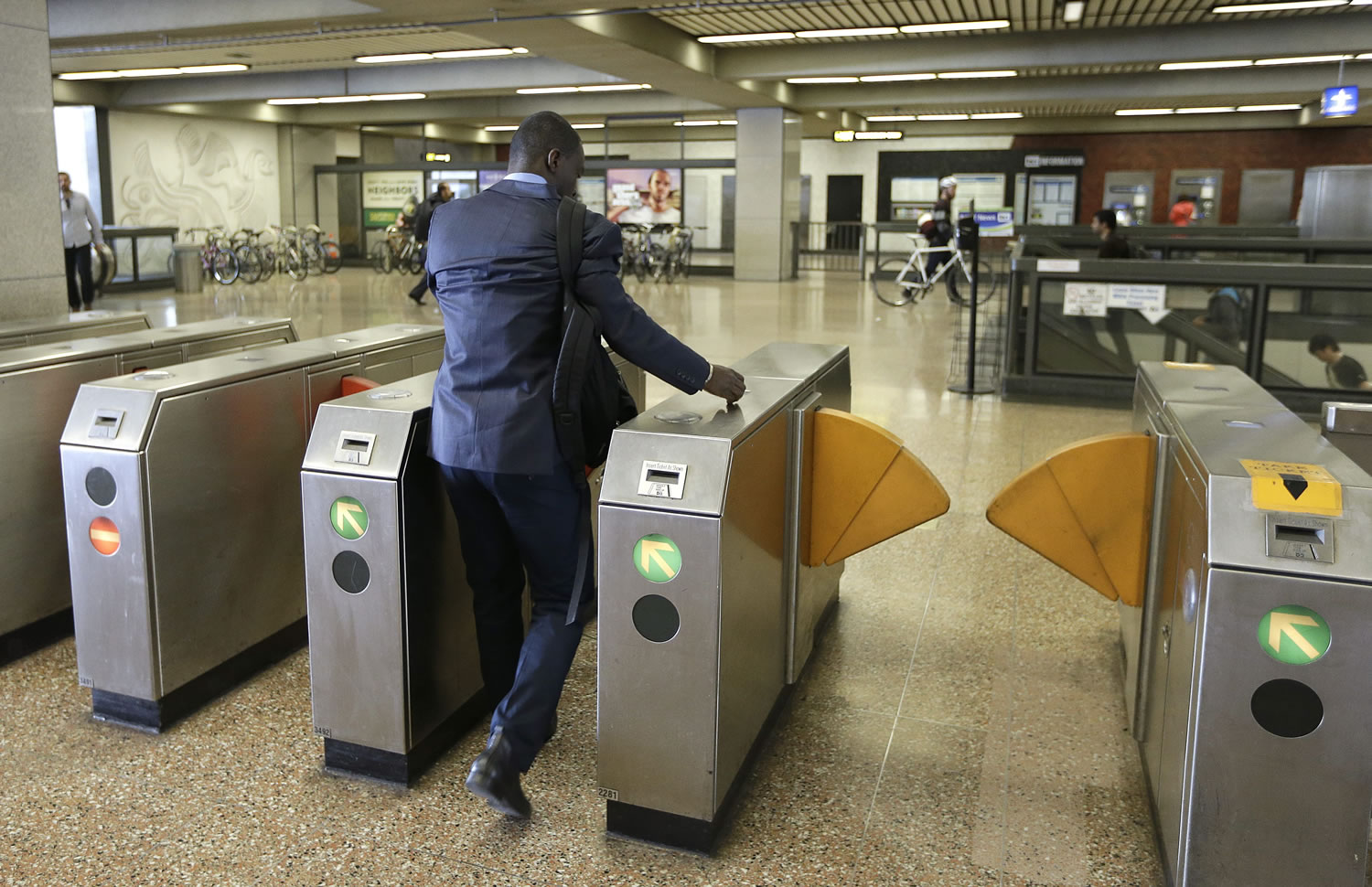OAKLAND, Calif. — The San Francisco Bay Area’s main commuter rail line was up and running on Wednesday after a potential transit strike was averted for the third straight day.
Federal mediator George Cohen said Tuesday night that the Bay Area Rapid Transit agency and its unions have made some progress in the intense negotiations to avoid a second strike in more than three months.
Negotiations are expected to resume at 10 a.m. Wednesday, according to BART officials.
The threat of a BART strike that would likely cripple the morning commute has been looming over commuters every weekday since last Thursday.
BART trains ran on a normal schedule Tuesday as unions and management returned to the bargaining table just hours after marathon negotiations ended around 5:30 a.m. The parties had agreed to extend labor talks past a midnight Monday deadline.
Meanwhile, workers at the Alameda-Contra Costa Transit District, a major regional bus line, have also threatened to strike this week if their conditions for a new contract aren’t met.
Hundreds of thousands of people in cities like Oakland and Berkeley depend on the two transit systems for their daily commutes and would spill out onto already congested roadways or be left stranded without a mass transit alternative if the strikes coincide.
BART is the nation’s fifth-largest rail system. AC Transit buses, which serve the East Bay and also provide service in and out of San Francisco, carry about 100,000 people roundtrip.
The buses served as alternative transportation for many BART train riders during a nearly five-day strike in July.
Both BART and AC Transit’s contracts expired in June. The bus workers issued a 72-hour strike notice Monday, saying they’ll walk off the job Thursday.
On Tuesday, the AC Transit board requested that Gov. Jerry Brown impose a 60-day cooling off period. The board said a bus strike would significantly endanger the public’s health, safety and welfare.
AC Transit workers have rejected two contract proposals that would have given workers a 9.5 percent raise over three years as they would also have to contribute more toward their health plans.
The AC Transit and BART negotiations are about two different contracts, though workers for each are pushing for similar benefits.
Union officials deny any coordination. Still, the specter of both transit agencies striking at the same time could give them leverage if the governor doesn’t delay the bus workers strike.
Sticking points in the 6-month-old negotiations include salaries and workers’ contributions to their health and pension plans. BART officials confirmed early Tuesday that some progress has been made but economic issues still need to be hammered out.
BART presented a “last, best and final offer” on Sunday that includes an annual 3 percent raise over four years and requires workers to contribute 4 percent toward their pension and 9.5 percent toward medical benefits. The value of BART’s proposal is $57 million over four years, though that figure also includes money for smaller unions and nonunion workers, BART spokeswoman Alicia Trost said.
SEIU Local 1021 executive director Pete Castelli said Monday the parties were somewhere between $6 million to $10 million apart over four years.
Workers from the two unions, which represent more than 2,300 mechanics, custodians, station agents, train operators and clerical staff, now average about $71,000 in base salary and $11,000 in overtime annually, the transit agency said. BART workers currently pay $92 a month for health care and contribute nothing toward their pensions.
ATU President Antonette Bryant told KCBS on Tuesday the union would not discuss any details of the talks because of a gag order imposed by the mediator.
“We’re not trying to avoid, mislead or keep information to ourselves,” she said. “We are diligently working trying to get a contract for our members and to get the riding public held off hostage.”




